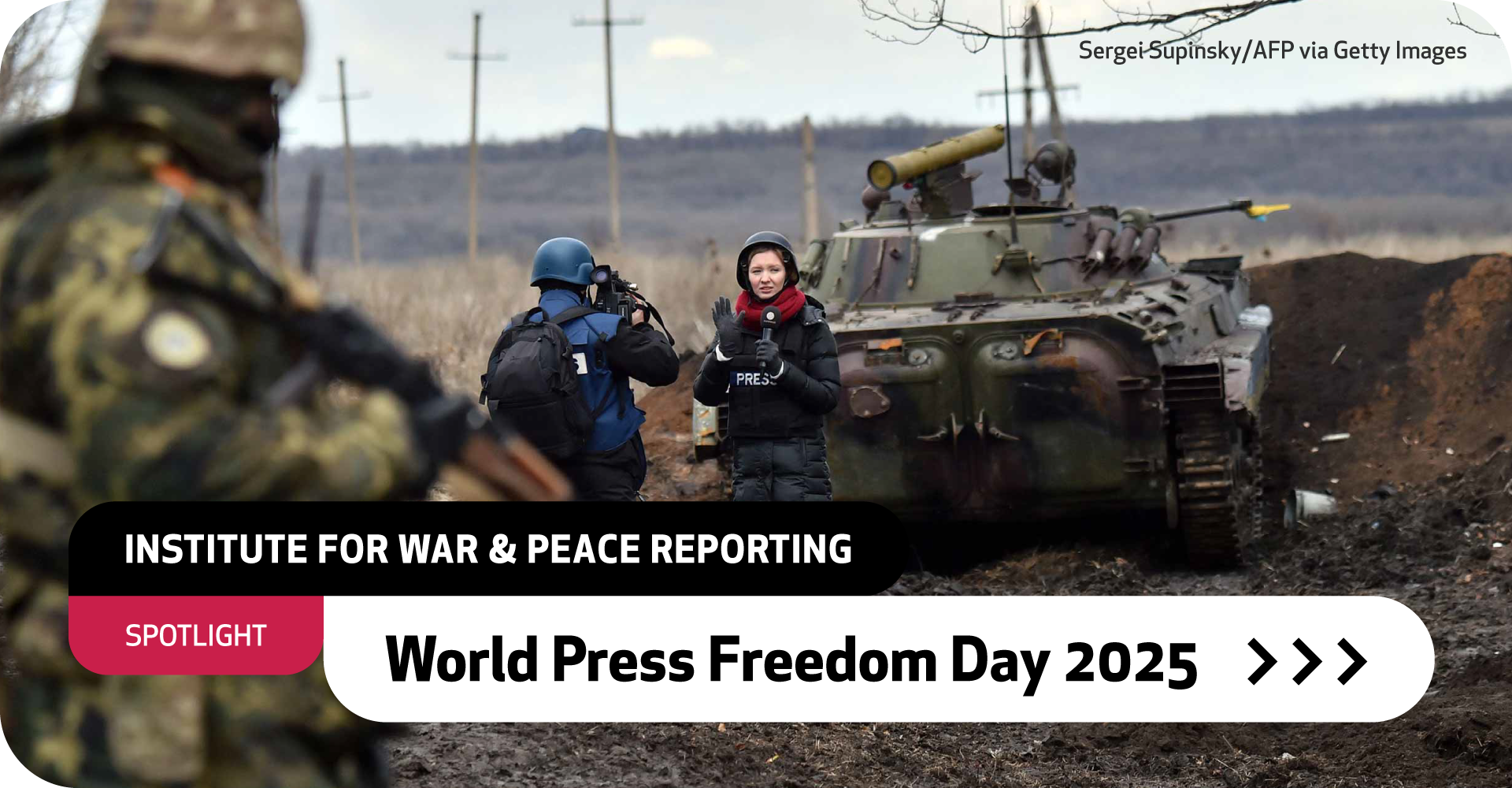Afghanistan: “The Taliban Took All My Dreams Away”
Women’s exclusion from the Afghan media space has meant that issues critical to women go unreported.
“What was the point of all that schooling and hard work to become a journalist?” asked Sophia Naseri, 27, an Afghan woman now living in the UK.
Sophia studied journalism for two years at Nai, an institute supporting open media in Afghanistan, with the aim of becoming a television presenter and a voice for Afghan women. But Kabul’s fall to the Taliban in August 2021 put paid to all her aspirations.
“I dreamed of becoming a renowned journalist one day, but the Taliban took all those dreams away from me,” she told IWPR.
“I have not only lost my job; I have also lost my voice”
The return of the Taliban has subjected Afghan women to unprecedented social, cultural, and economic restrictions. Exclusion and attacks on female media workers, in particular, mean that issues critical to women now go unreported.
Somayeh Walizadeh, from the Centre for Afghanistan Journalists, explained that around 80 per cent of female journalists had left Afghanistan since the Taliban took control of Kabul.
In the past three years, she continued, the Taliban had issued 22 punitive decrees against the media that primarily target women. These include banning interviews with women and phone calls between the opposite sexes and had even affected the activities of hundreds of female Afghan content creators on YouTube, covering a wide range of topics from cooking to social issues, as a way not not only to communicate but also earn a living.
One female journalist still living in Afghanistan, who asked to remain anonymous due to security concerns, recalled the six years she had spent working as a broadcaster at a local radio station south of Kabul.
She and her colleagues covered women-related issues, such as pregnancy and sexual health as well as cultural and social affairs, often featuring female activists and experts on the programmes.
“These activities not only raised awareness but also created a space for women to express their identity and concerns,” she explained. “We read poetry [or played] requested music, and in doing so, amplified the voices of women who were often marginalised in society.”
All this ended with the Taliban takeover. She was forced to stop work, and told IWPR that unemployment and social isolation had severely affected her emotional health.
“I have not only lost my job; I have also lost my voice,” she concluded.
Another young woman, who had been studying journalism at a university in Dehdadi district, Mazar-e-Sharif, until the fall of Kabul, has now been confined at home for over three years.
She said that living under the harsh conditions of the Taliban’s rule has been deeply distressing.
“Life for us girls has become an unbearable burden with only two options: endure or die,” she said, adding that she had once dreamt of using television to address women’s challenges.
“Today, more than anything, I need a loudspeaker so I can voice my pain,” she concluded.
Tajuddin, not her real name, is a civil and media activist from Badakhshan in north eastern Afghanistan who has spent over 20 years working with women in the community.
She said that the lack of female journalists working in rural and remote areas meant that issues critical to women went unreported.
“Unfortunately, in rural areas, the human rights situation of women is indescribable. And because there are no female journalists, these cases are opened and closed within the villages, with no chance of reaching a broader platform,” Tajuddin said.
Mari Nabardaeen, the former editor-in-chief of Seerat Weekly, a Kabul women’s magazine, said the impact of this exclusion had had a huge knock-on impact on the wider society.
“When women’s voices are removed from the media, the essence of true media no longer exists,” she warned.
Walizadeh, from the Centre for Afghanistan Journalists, said that the mostly untrained female content creators posting on YouTube could not even begin to fill the gap left by the near-absence of women in the Afghan media sphere.
“Due to their lack of familiarity with professional journalism techniques, they struggle to address their audience’s needs,” she concluded.
Aziz Rafi, head of the Afghanistan Civil Society Forum, stressed that prior to the fall of Kabul to the Taliban, more than half of the 20,000 media professionals working in Afghanistan were women.
“Under Taliban rule, Afghan women have been erased not only physically but also in the media, political, social, and cultural spheres, pushing them further into the margins of society,” he said.
The continuing struggle by Afghan women to speak out, even via YouTube channels, showed how resilient they truly were, Rafi continued, adding, “Neither will the Taliban be able to suppress women, nor will women surrender to the current conditions.”

